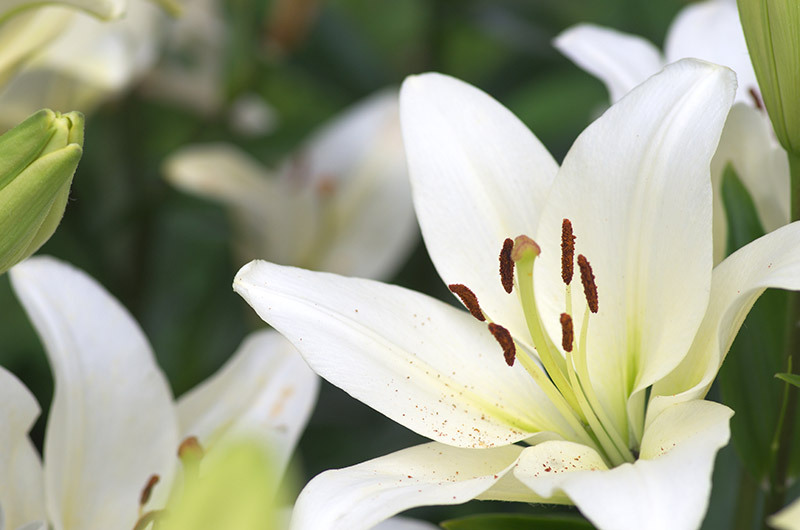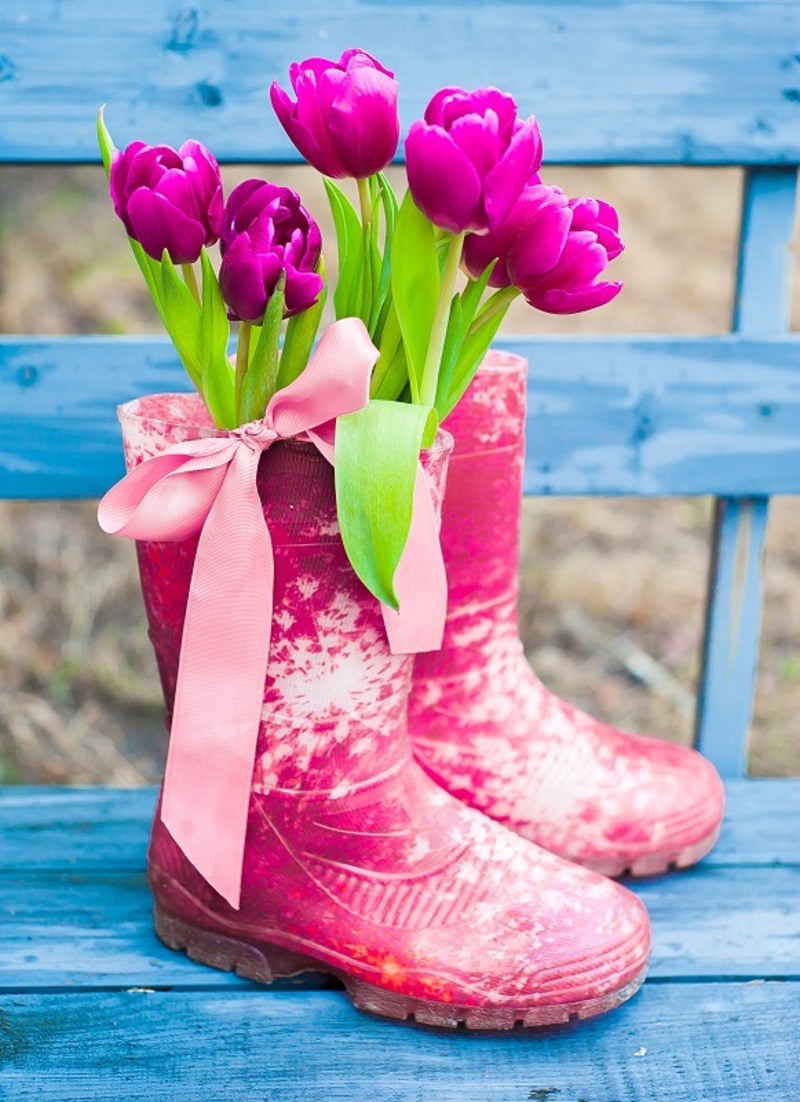How Your Birth Flower Can Illuminate Aspects of Your Character
Have you ever wondered how birth flowers may influence or reveal parts of your unique personality? While zodiac signs and birthstones often steal the spotlight, the language of flowers paints an equally vibrant and telling portrait of your character. Each month is associated with its own birth flower, each with historic symbolism and hidden meanings that can shine a light on who you are at your core.
Discovering the Magic of Birth Flowers
Flowers have been used as emblems, symbols, and messengers for centuries. The tradition of associating individual flowers with birth months likely originated in Ancient Rome but has since become a cherished way to celebrate birthdays around the world.
But what exactly is a birth flower? A birth flower is a special flower connected to your month of birth, carrying particular meanings and connotations. Just as each star sign reflects certain traits, so does your birthday flower. Learning about your birth flower meaning can be an eye-opening journey--one that deepens your self-awareness and helps you connect to natural cycles.

What Does Your Birth Flower Say About You?
Let's take a closer look at each month's flower, exploring the personal traits and symbolism they carry. By understanding your birth month flower, you can gain valuable insights into your innate strengths, preferences, and character.
January: Carnation and Snowdrop
- Carnation: Known for its ruffled beauty, the carnation symbolizes loyalty, admiration, and deep love. If you were born in January, your character likely reflects steadfastness and a nurturing spirit. Carnations also represent resilience--signifying your ability to thrive in challenging conditions.
- Snowdrop: The delicate snowdrop stands for hope and renewal. If you resonate with this flower, you may possess a quietly optimistic character, often serving as a beacon of hope for others.
February: Violet and Primrose
- Violet: Symbolizing modesty and fidelity, violets are understated but memorable. February-born individuals may be known for their unassuming nature, quiet strength, and deep loyalty.
- Primrose: Representing young love and devotion, primrose personalities value their closest relationships and tend to be sensitive and affectionate.
March: Daffodil and Jonquil
- Daffodil: Often associated with new beginnings and positivity, the daffodil suggests a warm, optimistic, and hopeful character. March babies may embrace change with open arms and inspire those around them.
- Jonquil: This flower signifies affection and desire, pointing to a heartfelt and sincere nature.
April: Daisy and Sweet Pea
- Daisy: Embodying innocence and purity, daisies indicate a cheerful, open-hearted personality. If the daisy is your birth flower, you are likely to bring joy and light wherever you go.
- Sweet Pea: Known for blissful pleasure and departure, sweet peas reflect a gentle charm and a tendency to look forward to new adventures.
May: Lily of the Valley and Hawthorn
- Lily of the Valley: This fragrant bloom stands for humility, sweetness, and a return to happiness. May-born individuals often possess a humble confidence and an ability to uplift others.
- Hawthorn: Symbolizing hope and supreme happiness, hawthorn suggests a positive disposition and a protective, caring nature.
June: Rose and Honeysuckle
- Rose: The timeless rose embodies love, passion, and appreciation. If you're a June baby, you may be naturally romantic, expressive, and deeply affectionate.
- Honeysuckle: This flower signifies devoted affection and lasting bonds, hinting at your loyalty and steadfastness.
July: Larkspur and Water Lily
- Larkspur: Representing levity and positivity, larkspur points to an open-hearted, optimistic soul.
- Water Lily: Known for purity and enlightenment, water lilies hint at your inner calm and intuitive strength.
August: Gladiolus and Poppy
- Gladiolus: Symbolizing integrity and strength of character, the gladiolus denotes determination, moral uprightness, and a fearless spirit.
- Poppy: With meanings tied to imagination and remembrance, poppies suggest an imaginative personality with a strong sense of honor.
September: Aster and Morning Glory
- Aster: Stand for wisdom and valor, asters point to a perceptive, courageous character.
- Morning Glory: With their fleeting beauty, morning glories symbolize love and affection--hinting at a passionate, appreciative spirit.
October: Marigold and Cosmos
- Marigold: Representing warmth, creativity, and determination, marigolds indicate a vibrant, entrepreneurial soul.
- Cosmos: With their tranquil beauty, cosmos flowers point to a calm, orderly, and harmonious nature.
November: Chrysanthemum
- Chrysanthemum: This flower symbolizes joy, optimism, and longevity. November-born individuals are often supportive, cheerful, and deeply loyal.
December: Narcissus and Holly
- Narcissus: Standing for hope and faithfulness, narcissus conveys a strong sense of optimism and resilience.
- Holly: Known for protection and domestic happiness, holly hints at a nurturing, protective personality with a deep love of home.
Why Understanding Your Birth Flower Matters
Learning more about your birth flower is much more than a fun fact--it can be a powerful tool for personal growth. Understanding the meaning of your birth flower can provide clarity and validation about certain character traits or emotional tendencies you may have recognized but not fully understood.
- Self-awareness: When you reflect on your flower's meaning, you may identify both strengths and areas for growth. For example, a person with the aster (associated with wisdom) may realize they are natural problem-solvers but might also feel pressure to always have the answers.
- Deeper connections: Sharing and discussing birth flowers with friends or loved ones can bring about a new sense of connection and appreciation for each other's unique qualities.
- Personal expression: Many people incorporate their birth flower symbolism into art, jewelry, or even tattoos as an expression of identity and authenticity.
Enriching Traditions and Celebrations
Birth flowers also offer a beautiful way to personalize gifts or celebrations. Gifting someone their birth flower bouquet or an item adorned with their special bloom shows attention to detail and an appreciation of who they truly are.
Consider these ways to bring more birth flower magic into your life:
- Send friends or family a bouquet featuring their birth month flower on their birthday.
- Incorporate your birth flower into home decor or self-care rituals for daily inspiration.
- Wear jewelry or accessories with your flower as a subtle nod to your unique qualities.
- Create art that celebrates your flower's form or symbolism for a deeper sense of connection.
The Science and History Behind Birth Flower Symbolism
You might wonder--how did birth flowers come to be, and why do they have such enduring hold on our imaginations? The tradition of associating flowers with character dates back centuries.
Floriography: The Language of Flowers
During the Victorian era, floriography--or the "language of flowers"--reached the height of popularity. People used blooms to express emotions or intentions that societal norms made difficult to state plainly. Every flower carried a meaning. Over time, these meanings evolved into the birth flower calendar we know today.
Modern psychology recognizes that symbols like flowers can mirror or even shape our identities. Surrounding yourself with touchstones of personal meaning--like your birthday flower--can reinforce positive self-concepts and help nurture your best qualities.
Frequently Asked Questions About Birth Flowers and Personality
- Can I choose a different flower if I don't feel connected to my birth month flower?
Absolutely! While birth flowers offer wonderful insight, many people are also drawn to flowers for other reasons. Trust your intuition--every flower carries unique energies, and the right one for you might not correspond with your birth calendar. - Are birth flower meanings universal?
Many flowers have widely-agreed upon symbolic meanings, especially in Western culture, but interpretations can vary by region and tradition. The most important thing is what feels true and meaningful to you. - How can I use my birth flower to foster personal growth?
Reflecting on your birth flower's symbolism can help you identify strengths and opportunities for development. Some people use their birth flower as an anchor for journaling, meditation, or goal setting.

Final Thoughts: Embracing the Wisdom of Your Birth Flower
Your birth flower is more than a pretty bloom--it's a symbol of your character, potential, and the timeless beauty you bring to the world. Whether you're a steadfast carnation, a creative marigold, or a resilient daffodil, your flower reminds you of your special place in the garden of humanity.
Cultivating a deeper relationship with your birth flower can invite more mindfulness, inspiration, and authenticity into your life. Use this knowledge as a way to honor your journey and celebrate your own, uniquely beautiful traits. The next time you see your flower in a garden or bouquet, remember--it's not just a symbol. It's a luminous reflection of everything you are and all you can be.
Explore More: Bringing Birth Flower Insights into Your Everyday Life
- Start a journal: Reflect on your birth flower characteristics. How do they match your personality or experiences?
- Practice mindfulness: Meditate or relax with an image or scent of your flower nearby for a calming, centering experience.
- Learn about others: Look up birth flowers for your loved ones and see how their symbolism matches their characters.
Let your birth flower illuminate your path toward deeper self-knowledge and personal fulfillment. Dive into the secret language of flowers, and let each petal tell a story about your inner world!

